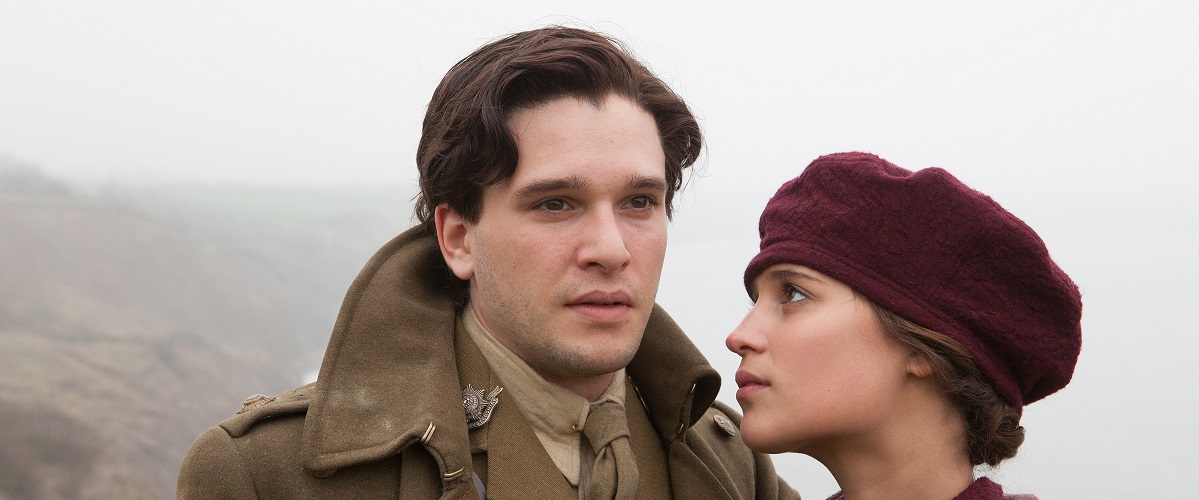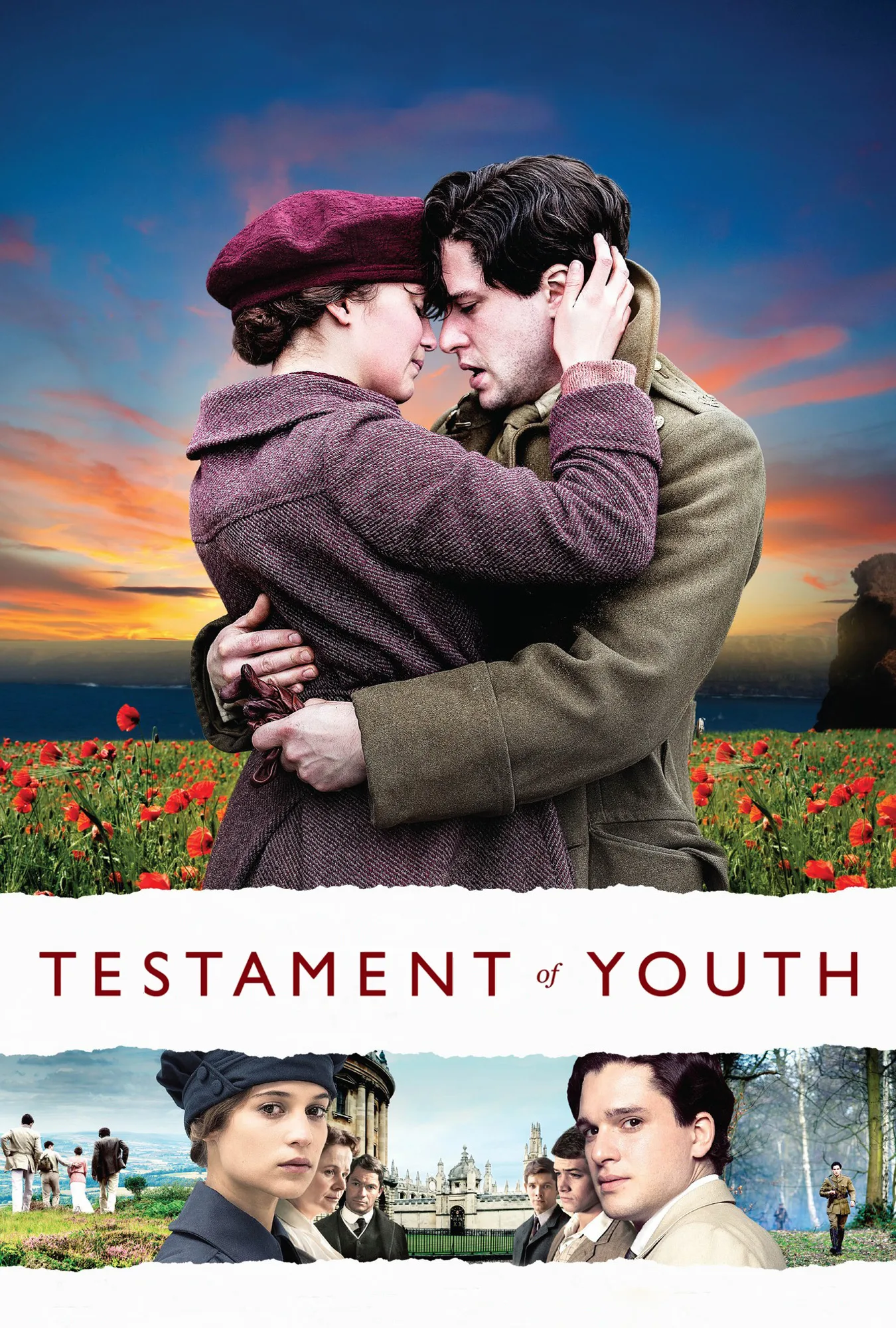Anchored by an extraordinary performance from actress Alicia Vikander, James Kent's "Testament of Youth" bears comparison to many other superbly mounted costume dramas backed by the BBC, but this one has a special distinction: it chronicles the horrors that World War I inflicted on a generation of young English people from a woman's perspective.
Though the war was followed by a slew of books about it, Vera Brittain's account of her own experiences has been regarded as unique. It did not appear in the war's immediate aftermath, partly because the aspiring writer didn't know how to deal with her memories. She first tried writing a novel, which she shelved as a failure, a judgment she also made against a subsequent attempt to make a book by fictionalizing journals and letters. It was only later, inspired by filmmaker John Grierson's coining of the term "documentary," that she decided to craft a nonfiction account of her experiences, which became an instant bestseller upon its publication in 1933. (The book was previously filmed as a BBC television series in 1979; it was followed by two sequels, "Testament of Friendship" and "Testament of Experience," which have not been filmed.)
In some ways, making a TV series out of Brittain's 661-page memoir, which covers her life from childhood to 1925, has an obvious logic. In turning the material into a two-hour movie, screenwriter Juliette Towhidi understandably elected to sacrifice some of the book's expansiveness by focusing on events leading up to the war and the war itself, giving only a glimpse of Brittain's activities as an ardent pacifist afterwards.
Following a brief prologue that shows Vera (Vikander) stunned at the news of the armistice in 1918, the story flashes back to the halcyon, unsuspecting days prior to war's outbreak more than four years earlier. Here, Vera's enjoying an impromptu rural swim with her beloved brother Edward (Taron Egerton) and their friend Victor (Colin Morgan).
Though these three are all high-spirited people enjoying the pleasures of youth, Vera's life is anything but becalmed. Her desire to attend university to gain an education that will allow her to pursue a career as a professional writer is staunchly opposed by her father (Dominic West) and mother (Emily Watson), who believe that women have no reason to seek advanced schooling much less work outside the home. Vera is fiercely determined, though, and receives some crucial support from Edward.
Her brother also affects her fate in introducing her to a schoolmate of his, Roland Leighton (Kit Harrington). Though Vera had decided not to let romantic attachments arise lest they interfere with her career goals, she feels an immediate chemistry with the dreamily handsome Roland, who writes poetry and admires her independence.
When she achieves her goal of admission to Oxford and goes up to begin her studies, it's like a dream has come true, but the nightmare of war intervenes with cruel alacrity. Amidst all the patriotic fervor and the belief that the conflict will be glorious and short-lived, most young men haven't the slightest hesitation about enlisting, and the recruits soon include Edward, Victor and Roland. The latter's departure is particularly wrenching for Vera as the two have fallen in love and will become engaged.
Though her battle to enter university was hard-won, Vera also feels the call of duty and gives up her studies to become a nurse. She is first stationed in London, where she has to overcome the suspicions of some against her privileged background. Then she goes off to the battlefront in France, where such petty concerns are instantly forgotten amid the chaos and challenges of tending to a constant influx of the horribly maimed and dying.
From "The Big Parade" to "Paths of Glory," movies about World War I have focused on the particularly hellish conditions faced by men engaged in industrial-scale trench warfare. Seeing the consequences of that destruction from a nurse's point of view is no less sobering. Vera must deal with the screams and pleas of men who have suffered the most gruesome injuries, and hurried amputations are the rule. (The film used veterans of the Afghanistan war, supplied by an agency called Amputees in Action.)
Reflecting the widespread devastation that the war visited on a generation of Europeans, all of Vera's closest male contemporaries and intimates suffer the terrible depredations of combat and illness. Yet she is just as moved by her ministrations to a dying German soldier, whose final agonies, she wrote later, were a crucial factor in leading her to be an antiwar activist for the rest of her life.
An intimate epic, "Testament of Youth" has great historical sweep yet remains focused on the human vicissitudes experienced by Vera and her circle. Making his feature debut after work in television and documentaries, director James Kent proves exceptionally skilled in supplying the film with a hauntingly poetic visual sense and eliciting fine, exacting performances from his able cast.
While all of the actors' work deserves commendation, special praise must be given to Alicia Vikander, a Swedish actress who does an amazing job conveying one young Englishwoman's strength, resilience, intelligence and vulnerability. Considering the horrors and tragedies the war rained on Vera Brittain, it's perhaps surprising she survived with her mind intact. Yet Vikanker's performance clearly suggests the inner resources and tremendous determination that allowed her not only to pull through, but also to write an enduring testament to those who suffered and died.




















